Please use this identifier to cite or link to this item:
https://repositorio.ipea.gov.br/handle/11058/14913Files in This Item:
| File | Description | Size | Format | |
|---|---|---|---|---|
| ar_IPCOnePager92.pdf | 98.75 kB | Adobe PDF | 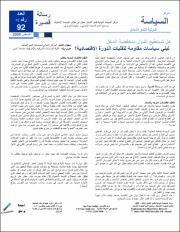 View/Open | |
| en_IPCOnePager92.pdf | 56.54 kB | Adobe PDF | 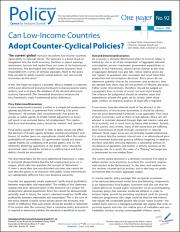 View/Open | |
| es_IPCOnePager92.pdf | 67.4 kB | Adobe PDF | 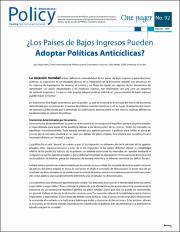 View/Open | |
| fr_IPCOnePager92.pdf | 69.48 kB | Adobe PDF | 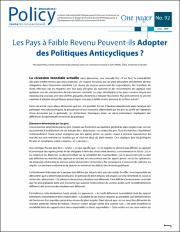 View/Open | |
| pt-br_IPCOnePager92.pdf | 68.59 kB | Adobe PDF | 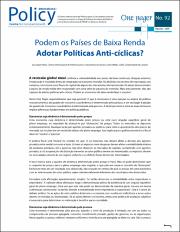 View/Open | |
| zh-hans_IPCOnePager92.pdf | 228.07 kB | Adobe PDF | 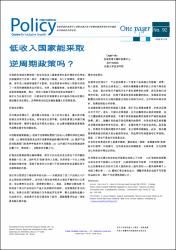 View/Open |
| Title: | Can Low-Income Countries Adopt Counter-Cyclical Policies? |
| Other Titles: | تبني سياسات مقاومة لتقلبات الدورة الإقتصادية؟ ¿Los Países de Bajos Ingresos Pueden Adoptar Políticas Anticíclicas? Les Pays à Faible Revenu Peuvent-ils Adopter des Politiques Anticycliques ? Podem os Países de Baixa Renda Adotar Políticas Anti-cíclicas? Can Low-Income Countries Adopt Counter-Cyclical Policies? |
| Authors: | Hailu, Degol Weeks, John |
| Abstract: | The current global recession reconfirms low-income countries’ vulnerability to external shocks. The exposure is a direct result of integration into the world economy. Declines in export earnings, remittances, tourism and capital flows are some of the transmission mechanisms. The developed and middle-income countries have responded with a series of stimulus packages. More to the point, they are able to adopt counter-cyclical policies. Can low-income economies do the same? (…) A recessão global atual confirma a vulnerabilidade dos países de baixa renda aos choques externos. |
| metadata.dc.rights.holder: | International Policy Centre for Inclusive Growth United Nations Development Programme |
| metadata.dc.rights.license: | O texto e dados desta publicação podem ser reproduzidos desde que as fontes sejam citadas. Reproduções com fins comerciais são proibidas. |
| metadata.dc.type: | One Pager |
| Appears in Collections: | Publicações do IPC-IG |
Items in DSpace are protected by copyright, with all rights reserved, unless otherwise indicated.

